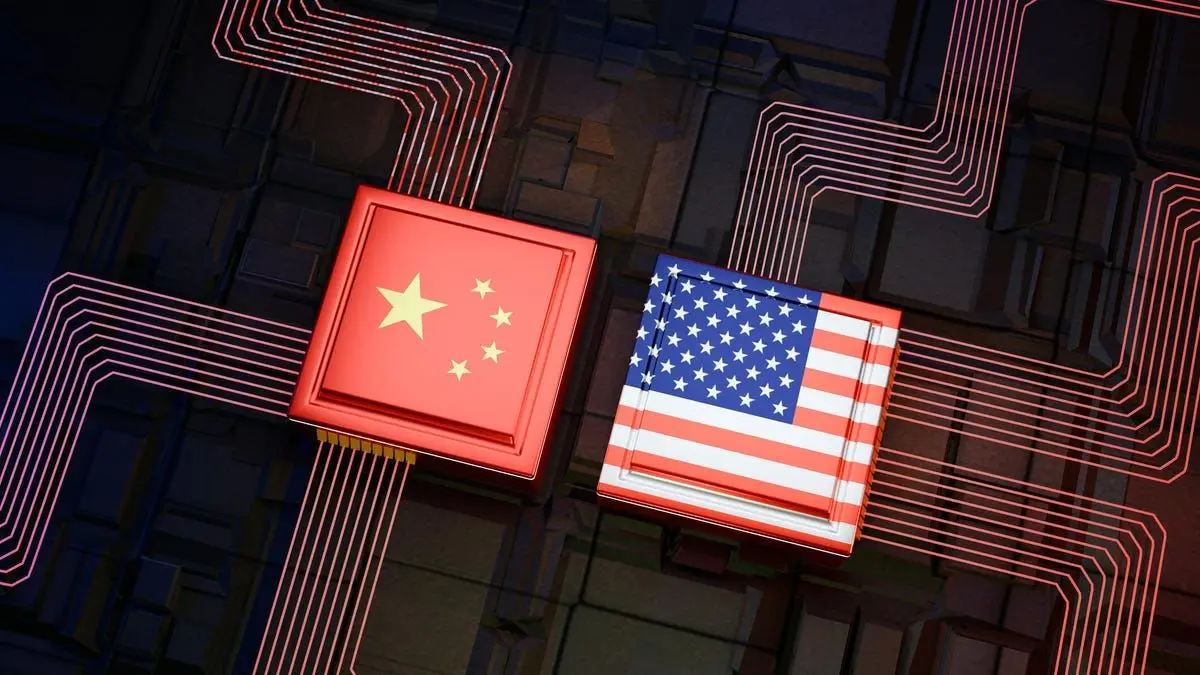China's AI Strategy: Frenzy, Competition, and Global Implications
2 Sources
2 Sources
[1]
China's AI Strategy Relies on Frenzy and Frenemies
Wandering through the halls of China's top artificial intelligence summit this week, I overheard heated debates on some of the thorniest issues facing the sector: How do we solve the problem of interoperability if hundreds of companies are launching their own AI agents? Which large language models are the most developer-friendly to build apps on? Are humanoids tools or companions? Held on the banks of the Huangpu river in Shanghai, the World AI Conference convened thousands of people -- as well as scores of robots -- and brought to life all the passions and pitfalls of the current state of AI in China. It also put into stark contrast the chasm between the strategy pushed by Beijing and the one touted by the White House.
[2]
China's AI strategy relies on frenzy and frenemies
Wandering through the halls of China's top artificial intelligence this week, I overheard heated debates on some of the thorniest issues facing the sector: How do we solve the problem of interoperability if hundreds of companies are launching their own AI agents? Which large language models are the most developer-friendly to build apps on? Are humanoids tools or companions? Held on the banks of the Huangpu river in Shanghai, the World Artificial Intelligence Conference convened thousands of people -- as well as scores of robots -- and brought to life all the passions and pitfalls of the current state of AI in China. It also put into stark contrast the chasm between the strategy pushed by Beijing and the one touted by the White House. It's the first major gathering since DeepSeek's breakthrough reasoning model launched earlier this year, driving intense competition at home and proving China can go toe-to-toe with Silicon Valley. With that exuberance came the crowds of challengers, present in so many domestic industries, encouraged by government support and an open-source ecosystem that allows firms to quickly learn from rivals. When one of the so-called Little Dragons, Moonshot, released a massive open-source model that excelled at coding tasks, Alibaba Group was able to update their own Qwen model within about a week to improve benchmarks at the same skills that sent Kimi-K2 viral.
Share
Share
Copy Link
The World AI Conference in Shanghai showcases China's AI advancements and strategy, highlighting the contrast with US approaches and the intense domestic competition driving innovation.
China's AI Conference Showcases Technological Advancements
The World Artificial Intelligence Conference, held on the banks of the Huangpu River in Shanghai, has brought together thousands of attendees and numerous robots, offering a vivid snapshot of China's current AI landscape
1
2
.
Source: Bloomberg
Key Debates and Challenges in AI
Conference attendees engaged in intense discussions on critical issues facing the AI sector. These debates centered around three main questions:
- How to address interoperability challenges with the proliferation of AI agents?
- Which large language models are most developer-friendly for building applications?
- Should humanoid robots be considered tools or companions?
1
2
These discussions underscore the complex technological and ethical considerations that come with AI advancement.
China's Competitive AI Landscape
The conference is the first major gathering since DeepSeek's breakthrough in reasoning models earlier this year, which demonstrated China's ability to compete on par with Silicon Valley
2
. This achievement has intensified domestic competition, fueled by government support and an open-source ecosystem that facilitates rapid learning and innovation among rival firms.Rapid Innovation and Adaptation
A prime example of this fast-paced innovation is the case of Moonshot, one of the "Little Dragons" in China's AI sector. When Moonshot released a large open-source model excelling at coding tasks, tech giant Alibaba Group quickly responded by updating their Qwen model within approximately a week to improve benchmarks in the same skills that made Kimi-K2 viral
2
.Related Stories
Government Support and Open-Source Ecosystem
China's AI strategy heavily relies on government backing and an open-source environment. This approach has fostered a culture of rapid development and fierce competition among domestic companies. The strategy stands in contrast to the approach taken by the United States, highlighting the different paths these global powers are taking in the AI race
1
2
.Global Implications
The developments showcased at the World AI Conference have significant implications for the global AI landscape. China's ability to rapidly innovate and compete with established Silicon Valley giants signals a shift in the balance of technological power. As AI continues to evolve, the strategies employed by different nations will likely shape the future of this transformative technology.
References
Summarized by
Navi
[1]
[2]
Related Stories
Recent Highlights
1
ByteDance's Seedance 2.0 AI video generator triggers copyright infringement battle with Hollywood
Policy and Regulation

2
Demis Hassabis predicts AGI in 5-8 years, sees new golden era transforming medicine and science
Technology

3
Nvidia and Meta forge massive chip deal as computing power demands reshape AI infrastructure
Technology








